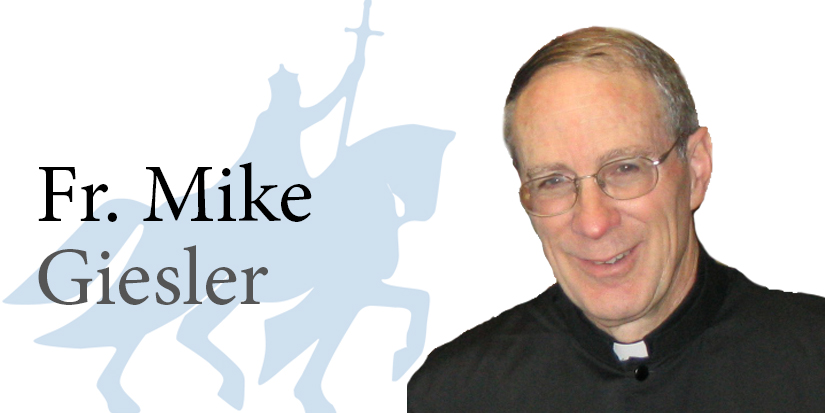
Liberation for us came at a great price, and continues to come at that same price — namely, the blood of the King, who is the Lamb of God. Just as the Jews offered a lamb in sacrifice at the first Passover meal in Egypt, Christ offered Himself on the cross for us. He is both the priest and victim of our redemption. This was predicted in the Old Testament in the mysterious verses of Isaiah: “He was despised and rejected by men; a man of sorrows and acquainted with grief; and as one from whom men hide their faces He was despised, and we esteemed Him not” (Isaiah 53:3).
The cost of redemption therefore was rejection and scorn; yet grace somehow flowed from that opprobrium in a mysterious way: “But He was wounded for our transgressions, He was bruised for our iniquities; upon Him was the chastisement that made us whole, and with His stripes we are healed” (Isaiah 53:5).
That wholeness and healing transforms our souls, and enables us to be co-redeemers with Christ as we reach out to others.
Christ could have saved us, perhaps, with just a small cut of His finger, or by fasting for a little while, or by simply willing to save us. But He and His Father determined a far more demanding and generous way of redeeming us: the bloody and painful crucifixion, and everything that went with it. We should never forget this if we want to do any real good with our lives. We weren’t saved by military power, technology, a great economy or a marvelous speech. We weren’t saved by money or popularity either. We were saved by one man dying a painful death, being mocked mercilessly and shedding all of His blood until only water poured from His side. If we forget this, if we allow ourselves to be comfortable and lukewarm about our faith, we can’t be part of His redemption.
Perhaps you have had the experience of a great burden or sorrow in life, maybe an addiction or obsession. What a great relief for you if God has healed you of it, either directly or through others. You may still be tempted and feel that weakness welling up at times, but with the grace of redemption, you know that you have been healed and that you aren’t alone. You have begun to experience the “fullness” of Christ and His saving grace coming into you.
The message of the Gospel is truly salvific. As Christ told His apostles when they were arguing among themselves about matters of preference or place, “the Son of man came not to be served, but to serve, and to give His life as a ransom for many” (Matthew 20:28).
That ransom, that free offering of Himself first to God His Father and then to the apostles and to all men, is the essence of redemption. He has bought us back from the power of sin and corruption. St. Paul puts this graphically in his letter to the Ephesians. “And you He made alive, when you were dead through the trespasses and sins in which you once walked, following the course of this world …” (2:1-2).
Redemption takes us from a condition of emptiness and despair into a state of grace and hope. It doesn’t depend on feelings or emotions, but on the action of God’s grace in the soul. It begins to heal the hurt and pain that often brings tension between people who should love each other. In speaking of the enmity between Jews and Gentiles, St. Paul affirms that Christ unites both peoples in His salvation:
“For He is our peace, who has made us both one, and has broken down the dividing wall of hostility. … So then you are no longer strangers and sojourners, but you are fellow citizens with the saints and members of the household of God …” (Ephesians 2: 14.19).
Father Giesler is a priest of Opus Dei living at the Wespine Center in St. Louis. He has written a book and several articles on Sacred Scripture and the natural law.